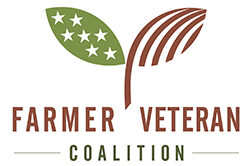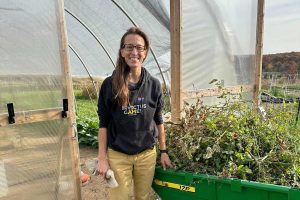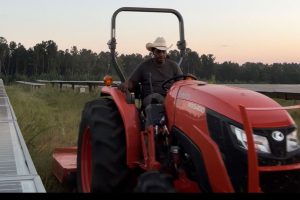The Texas and Southwestern Cattle Raisers Association (TSCRA) hosted its annual Summer Meeting the middle of last month, bringing together cattle producers, landowners, and industry partners from across Texas and the Southwest. Held in historic San Antonio, the meeting provided a vital forum to discuss emerging challenges and opportunities shaping the cattle industry today.
The three-day event was filled with insightful sessions, policy updates, and networking opportunities. TSCRA leaders opened the meeting by reaffirming their commitment to protecting property rights, advocating for practical water policy, and ensuring market transparency for cattle producers navigating an increasingly complex economic landscape.
Key general sessions featured TSCRA’s government affairs team outlining recent legislative wins and ongoing priorities. Among the top issues were water permitting requirements that often place undue burdens on agricultural producers, fencing liability laws that impact ranch operating costs, and concerns around market concentration affecting fair prices for cattle. Speakers encouraged members to remain engaged with local, state, and federal lawmakers to ensure the voice of ranchers remains strong in policy discussions.
A major highlight of the meeting was the economic outlook presented by leading cattle market analysts. They forecasted cautious optimism for the remainder of 2025, citing continued strong consumer demand for beef, tightening cattle supplies, and improving pasture conditions in some areas due to recent rains. However, concerns persist over rising input costs, lingering drought conditions in West Texas, and global geopolitical tensions that could impact trade flows and market stability. Analysts urged producers to continue employing risk management strategies to protect operations from unexpected volatility.
Educational breakout sessions throughout the meeting focused on practical tools and innovations to enhance ranch sustainability and profitability. Sessions included regenerative grazing practices that improve soil health and forage resilience, leveraging carbon markets to generate new income streams, precision breeding technologies to strengthen herd genetics, and advanced livestock handling techniques to improve safety and animal welfare outcomes. Producers shared firsthand experiences implementing these practices and the measurable benefits to their operations.
One critical topic that stood out during the meeting was animal health, particularly concerns about the potential re-emergence of screwworm in Texas. Although screwworm was eradicated in the U.S. decades ago thanks to a highly successful sterile fly release program, producers remain vigilant about preventing its reintroduction. With increased animal movements and cross-border risks from neighboring regions, TSCRA animal health experts emphasized the importance of maintaining surveillance and biosecurity protocols to protect livestock and ranch economies from devastating infestations that could cost the industry millions in treatment and production losses.
Water availability and policy also dominated discussions, as prolonged drought conditions continue to challenge ranchers across the state. Producers shared stories of hauling water to maintain herds, navigating complex permitting processes for wells and surface water, and facing increasing competition from municipal growth for limited water resources. TSCRA leaders called for fair, science-based water regulations that recognize agriculture’s critical role in stewarding land and natural resources, while ensuring ranchers can sustain operations and protect livelihoods.
Throughout the meeting, TSCRA leadership emphasized their commitment to supporting members through effective advocacy, educational programming, and market resources. Recruiting and engaging the next generation of cattle producers remained a recurring theme, with dedicated young rancher sessions focused on business succession planning, accessing operating capital, and building leadership skills to sustain Texas ranching into the future.
As I attended this year’s TSCRA Summer Meeting, I was particularly struck by how these pressing issues – screwworm prevention and water availability – represent both the resilience and the vulnerability of our ranching communities. While the eradication of screwworm remains a shining example of science and industry collaboration, the continued vigilance required highlights how quickly progress can be undone without proactive monitoring and border protections. Equally, the reality of Texas water challenges is hitting home for many producers. Navigating drought, competing municipal demands, and complex regulatory frameworks is not only a question of operational viability but also of ensuring food security, ecosystem health, and economic vitality for rural communities.
The TSCRA Summer Meeting underscored that cattle producers remain solutions-focused, dedicated to innovation and stewardship. However, it is clear that they need supportive policies, practical research investments, and animal health programs to sustain their herds, operations, and the communities that depend on them. Events like this provide an essential forum for ranchers to share knowledge, connect with partners, and advocate collectively for an industry that remains the backbone of Texas agriculture and rural life.
About Farmer Veteran Coalition
Based in Waco, Texas, the National Farmer Veteran Coalition empowers Veterans to build meaningful careers in agriculture. FVC offers resources, training, and support to help them transition into farming or agricultural employment. Through education, mentorship, and partnerships, FVC creates economic opportunities, fosters sustainability, and enables Veterans to continue serving by strengthening American agriculture and their communities.
Established in 2009, some of FVC’s in-house programs include the Farmer Veteran Fellowship Fund small grant program, the nationally recognized Homegrown By Heroes label for Veteran-grown products, MarketMaker, Hives Training Program, Fields4Valor Food Security Program, and the national stakeholders conference. For more information, visit www.farmvetco.org or follow them on Facebook and Instagram at @FarmerVeteranCoalition and on YouTube at https://www.youtube.com/@farmvetcoalition/videos.






